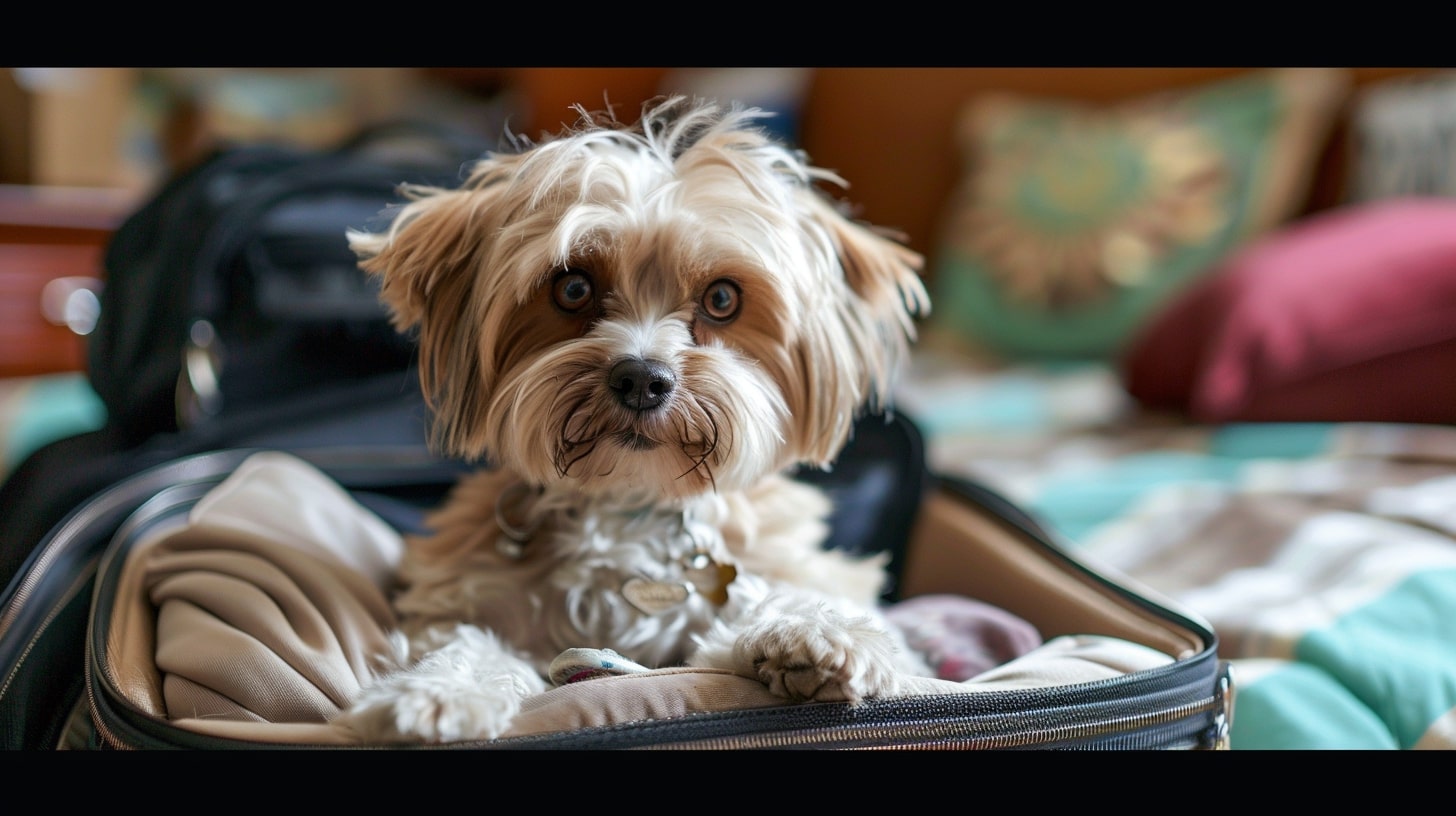
Daycare vs Boarding: What’s Best for Puppies?
Choosing the right care for your puppy is a big decision. Puppies, like babies, need a lot of attention, love, and proper care to thrive. The right care can make a significant difference in their development, health, and overall well-being. But with so many options out there, how do you know what’s best for your furry friend?
Daycare and boarding are two popular options for pet owners, but they serve different purposes and suit different needs. Daycare is great for socialization and daily activity, while boarding provides a safe place for your puppy when you’re away for extended periods. Understanding the pros and cons of each option will help you make an informed decision that benefits both you and your puppy.
In this article, we’ll dive deep into the differences between daycare and boarding, explore their benefits and drawbacks, and provide practical tips on preparing your puppy for each option. By the end, you’ll have a clear understanding of what works best for your puppy’s unique needs.
What is Puppy Daycare?

Definition and Overview
Puppy daycare is like a kindergarten for dogs. It’s a place where you can drop off your puppy during the day, knowing they’ll be safe, entertained, and well-cared for. These facilities offer structured activities, playtime, and rest periods, ensuring your puppy gets the right balance of exercise and relaxation.
Daycare centers are usually staffed by trained professionals who understand puppy behaviour and can handle a variety of situations. They provide a supervised environment where puppies can interact with other dogs, helping them develop essential social skills. Plus, it gives you peace of mind knowing your puppy isn’t alone at home, bored, or anxious.
Benefits of Daycare for Puppies
Puppy daycare offers several benefits that can positively impact your puppy’s development and happiness:
- Socialization: Daycare provides an excellent opportunity for your puppy to meet and play with other dogs, helping them learn how to interact appropriately.
- Exercise: With plenty of playtime and activities, your puppy gets the exercise they need to stay healthy and burn off excess energy.
- Supervised Environment: Trained staff ensure that all puppies are safe and that any potential issues are promptly addressed.
- Routine: Daycare helps establish a routine, which is beneficial for training and behaviour management.
Fun Fact: Puppies that regularly attend daycare are often better behaved at home because they’ve burned off their energy and had their social needs met during the day.
Potential Drawbacks of Daycare
While daycare has many benefits, it’s essential to consider the potential drawbacks:
- Overstimulation: Some puppies may find the constant activity and interaction overwhelming, leading to stress or anxiety.
- Exposure to Illnesses: With many dogs in one place, there’s a higher risk of your puppy catching illnesses, even with vaccination requirements.
- Cost: Regular daycare can be expensive, and costs can add up quickly.
It’s crucial to observe how your puppy responds to daycare and choose a facility that matches their temperament and needs. Always visit the daycare, meet the staff, and check their protocols to ensure it’s a good fit.
What is Puppy Boarding?

Definition and Overview
Puppy boarding is a service where your puppy stays overnight at a boarding facility while you’re away. Think of it as a hotel for dogs. Boarding facilities are designed to provide a safe, comfortable, and engaging environment for pets during their stay. They offer a range of services, including feeding, exercise, and sometimes grooming.
These facilities are typically staffed 24/7, ensuring your puppy is never alone. They often have separate areas for play, rest, and feeding, catering to the needs of different dogs. Some boarding places even offer additional perks like training sessions, spa treatments, and webcam access so you can check in on your puppy anytime.
Benefits of Boarding for Puppies
Boarding your puppy comes with several advantages, especially if you’re going on a trip or have an extended absence:
- Consistent Care: Boarding facilities provide regular feeding, exercise, and attention, ensuring your puppy’s routine isn’t disrupted.
- Safe Environment: With trained staff and secure premises, you can trust that your puppy is safe and well-cared for.
- Structured Activities: Many boarding facilities offer structured playtime, socialization, and enrichment activities to keep your puppy engaged.
Key Takeaway: Boarding is an excellent option if you need to be away from home for a while and want to ensure your puppy is in a safe, caring, and stimulating environment.
Potential Drawbacks of Boarding
Despite its benefits, there are some potential drawbacks to consider:
- Stress: Being in an unfamiliar environment can be stressful for some puppies, especially those who are anxious or shy.
- Limited Social Interaction: While some boarding facilities offer socialization, it may not be as extensive as daycare.
- Cost: Boarding can be pricey, especially for extended stays or facilities with extra amenities.
To mitigate these drawbacks, choose a reputable boarding facility with positive reviews, visit the place beforehand, and ensure your puppy has some familiar items from home to comfort them during their stay.
Key Differences Between Daycare and Boarding

Duration of Stay
The primary difference between daycare and boarding is the duration of stay:
- Daycare: Typically involves dropping off your puppy in the morning and picking them up in the evening. It’s ideal for daily care while you’re at work.
- Boarding: Involves overnight stays, ranging from a few nights to several weeks. It’s perfect for when you’re travelling or need extended care for your puppy.
Type of Interaction
Another key difference is the type of interaction your puppy will experience:
- Daycare: Focuses on socialization with other dogs, providing ample opportunities for your puppy to play and interact with peers.
- Boarding: Offers a more individualized approach, with staff providing one-on-one care and attention. Social interaction may be more limited compared to daycare.
Cost Comparison
Cost is also an important factor to consider:
- Daycare: Generally costs less on a daily basis compared to boarding. However, frequent use can add up.
- Boarding: Tends to be more expensive due to the extended care and amenities provided. Prices vary based on the facility and services offered.
Factors to Consider When Choosing Between Daycare and Boarding

Age and Temperament of Your Puppy
Your puppy’s age and temperament play a significant role in determining the best care option:
- Young Puppies: May benefit more from daycare where they can socialize and expend their energy during the day.
- Older Puppies: Might do better with boarding if they’re more settled and can handle longer periods away from home.
- Temperament: Consider if your puppy is social and enjoys being around other dogs (daycare) or if they’re more independent and might prefer a quieter, individualized environment (boarding).
Health and Vaccination Requirements
Ensuring your puppy is healthy and up-to-date on vaccinations is crucial for both daycare and boarding:
- Daycare: Typically requires proof of vaccinations to prevent the spread of illnesses.
- Boarding: Also requires vaccinations, and some facilities may have additional health checks or requirements.
Check the specific requirements of each facility to make sure your puppy meets all necessary health standards.
Location and Convenience
Convenience is another factor to consider:
- Daycare: Look for a facility close to your home or work to make drop-offs and pickups easier.
- Boarding: Choose a location that’s convenient for you, especially if you need to make frequent visits or have specific travel plans.
Research local options, read reviews, and visit facilities to find the best match for your puppy’s needs and your schedule.
Preparing Your Puppy for Daycare

Initial Vet Checkup
Before enrolling your puppy in daycare, it’s essential to schedule a vet checkup. This visit ensures that your puppy is healthy and up-to-date on all necessary vaccinations. Most daycare facilities require proof of vaccinations, including rabies, distemper, and Bordetella (kennel cough).
During the vet visit, discuss your plans for daycare with your veterinarian. They can provide insights on what to expect and tips on how to prepare your puppy for the new environment. They may also recommend additional vaccinations or health precautions based on your puppy’s specific needs.
Key Takeaway: A thorough vet checkup not only ensures your puppy’s health but also gives you peace of mind knowing they are ready for daycare.
Gradual Introduction
Introducing your puppy to daycare gradually can help them adjust to the new environment. Start with short visits to the daycare facility. This allows your puppy to become familiar with the sights, sounds, and smells of the place without feeling overwhelmed.
Begin with a quick tour and let your puppy explore under your supervision. Then, gradually increase the time they spend at daycare. This step-by-step approach helps reduce anxiety and makes the transition smoother for your puppy.
It’s also a good idea to ask the daycare staff about their procedures for introducing new puppies. Many facilities have specific protocols to ensure a positive experience for newcomers.
Necessary Supplies
When preparing your puppy for daycare, make sure to pack the necessary supplies. Here’s a checklist to help you get started:
- Food: Bring enough food for the day, along with feeding instructions.
- Water: While daycare facilities provide water, it’s good to pack a water bottle and bowl.
- Toys: Include a few favourite toys to keep your puppy entertained and comforted.
- Bedding: A blanket or bed from home can provide a sense of security and familiarity.
- Leash and Collar: Ensure your puppy has a sturdy leash and collar with an ID tag.
Label all items with your puppy’s name to avoid mix-ups. Communicate any specific needs or routines with the daycare staff to ensure your puppy’s care is consistent with what they are used to at home.
Preparing Your Puppy for Boarding

Choosing the Right Facility
Selecting the right boarding facility is crucial for your puppy’s comfort and safety. Start by researching local options and reading reviews from other pet owners. Look for facilities with positive feedback, especially regarding cleanliness, staff professionalism, and overall care.
Visit potential boarding facilities to see the environment firsthand. Pay attention to the following:
- Cleanliness: Ensure the facility is clean and well-maintained.
- Staff: Observe how the staff interacts with the animals. Are they friendly and attentive?
- Security: Check the security measures in place to prevent escapes and ensure your puppy’s safety.
- Facilities: Look for spacious play areas, comfortable sleeping quarters, and separate zones for different activities.
Ask about their daily routine, feeding schedules, and any special services they offer, such as grooming or training. A reputable boarding facility will be transparent and happy to answer all your questions.
Familiarizing Your Puppy
Just like with daycare, it’s important to familiarize your puppy with the boarding facility before an extended stay. Start with a trial overnight stay or a weekend visit to help your puppy adjust to the new surroundings.
During this trial period, observe how your puppy reacts. If they seem anxious or stressed, work with the facility staff to find ways to make them more comfortable. Bringing along familiar items, like their bed or favourite toys, can help reduce anxiety.
It’s also beneficial to maintain a consistent routine. Stick to the same feeding and play schedules your puppy is used to at home. This consistency helps your puppy feel more secure and reduces stress during their stay.
Packing Essentials

When it’s time for your puppy’s boarding stay, make sure to pack all the essentials. Here’s a checklist to ensure you don’t forget anything:
- Food: Pack enough food for the entire stay, along with detailed feeding instructions.
- Medications: Include any necessary medications, with clear dosing instructions.
- Bedding: A familiar bed or blanket can provide comfort.
- Toys: Bring a few favourite toys to keep your puppy entertained.
- Leash and Collar: Ensure your puppy has a secure leash and collar with ID tags.
- Emergency Contacts: Provide the facility with emergency contact information, including your vet’s details.
Label all items with your puppy’s name and any special instructions. Communicate with the boarding staff about any specific needs or routines to ensure your puppy’s stay is as comfortable as possible.
Essentials Checklist
| Category | Item | Description |
|---|---|---|
| Food | Dry Food | Enough for the entire stay, with feeding instructions. |
| Wet Food | Optional, if your puppy eats wet food. | |
| Treats | A supply of their favourite treats for training and comfort. | |
| Feeding Instructions | Detailed schedule and portion sizes. | |
| Medications | Prescription Medications | All necessary medications with clear dosing instructions. |
| Supplements | Any regular supplements your puppy takes. | |
| Medication Schedule | Written schedule for administration. | |
| Bedding | Bed | Your puppy’s favourite bed for comfort. |
| Blankets | Familiar blankets to provide a sense of security. | |
| Toys | Chew Toys | Durable chew toys to keep your puppy occupied. |
| Comfort Toys | Favourite toys that provide comfort and reduce anxiety. | |
| Interactive Toys | Toys that stimulate mental activity. | |
| Leash and Collar | Leash and Collar with ID Tag | Ensure the ID tag has your contact information. |
| Health Records | Vaccination Records | Proof of up-to-date vaccinations. |
| Health Certificate | Any recent health certificates or vet check-up records. | |
| Grooming | Brush or Comb | Your puppy’s regular grooming tools. |
| Shampoo | If the facility offers grooming, provide your preferred shampoo. | |
| Comfort Items | Scented Items | Items that smell like home, such as an old t-shirt. |
| Feeding Equipment | Food and Water Bowls | Familiar bowls that your puppy is used to. |
| Miscellaneous | Emergency Contact Info | Your contact information and an emergency contact person. |
| Vet Contact Info | Contact details for your veterinarian. | |
| Boarding Contract | Any required paperwork for the boarding facility. | |
| Specific Instructions | Any special instructions regarding care, behaviour, or routines. | |
| Travel Crate | If required for transportation to and from the facility. | |
| Flea and Tick Preventative | Ensure your puppy is protected during their stay. |
Conclusion
Summarizing Key Points
Choosing between daycare and boarding for your puppy can be a challenging decision, but understanding the key differences and benefits of each can make it easier. Daycare offers a structured environment for socialization, exercise, and routine, making it an excellent option for daily care. Boarding provides a safe, secure place for extended stays, ensuring your puppy receives consistent care while you’re away.
Both options have their pros and cons. Daycare is ideal for puppies who thrive on social interaction and play, while boarding suits those who need extended care in a familiar, structured environment. It’s important to consider your puppy’s personality, health needs, and your personal circumstances when making a decision.
Making an Informed Decision
To make the best choice for your puppy, visit potential daycare and boarding facilities, talk to staff, and observe the environment. Ensure that the facility you choose meets all your puppy’s needs, from health and safety to socialization and comfort.
Remember, the goal is to provide your puppy with the best care possible, whether it’s through daycare or boarding. By understanding the options and preparing your puppy for the experience, you can ensure they have a positive, enriching time while you’re away.
FAQs
- What age is best to start daycare or boarding for puppies?
It’s generally recommended to start daycare or boarding after your puppy has completed their vaccinations, usually around 16 weeks. Check with your vet for personalized advice. - How can I ensure my puppy will be safe at daycare or boarding?
Visit the facility, ask about their safety protocols, and ensure they have trained staff and secure premises. Reading reviews and asking for recommendations can also help. - What should I do if my puppy shows signs of stress after daycare or boarding?
Monitor your puppy closely and provide a calm, comforting environment at home. If stress persists, consult your vet for further advice. - How often should I use daycare or boarding services for my puppy?
It depends on your puppy’s needs and your schedule. Some puppies thrive with regular daycare visits, while others may only need occasional boarding. - Are there any alternatives to daycare or boarding for puppy care?
Yes, alternatives include hiring a pet sitter, using a dog-walking service, or arranging playdates with other puppies. Each option has its benefits and can be tailored to your puppy’s needs.

